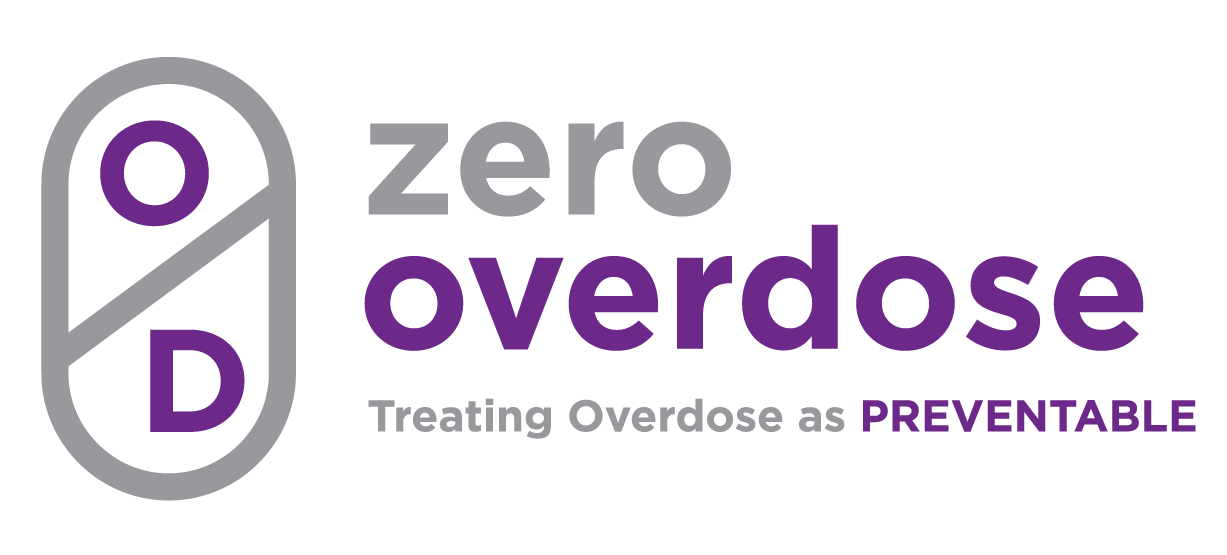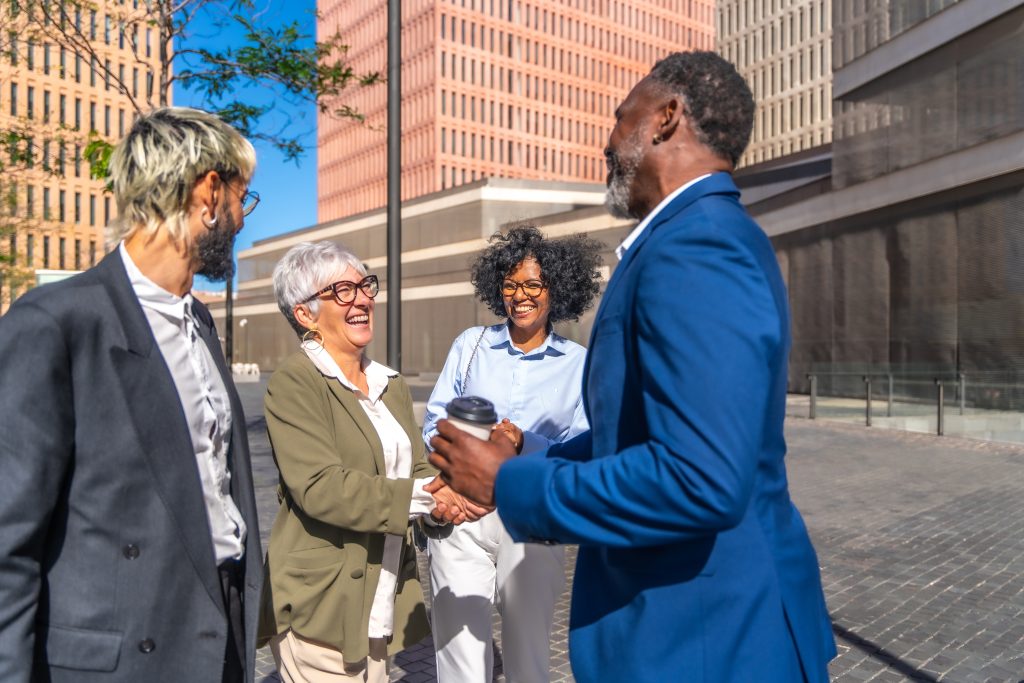Washington, DC, February 5, 2024 — The National Association of County and City Health Officials (NACCHO), representing the country’s over 3,300 local health departments, has awarded nearly $350,000 in funding to seven Overdose Response Strategy (ORS) pilot projects to help address the overdose crisis in their communities. With support from the Centers for Disease Control and Prevention (CDC), these funds will support seven ORS teams crossing the public health and public safety sectors to explore collaborative approaches for responding to the overdose crisis.
The United States is experiencing unprecedented levels of overdose deaths, with synthetic opioids driving a significant portion of both fatal and nonfatal overdoses. The number of people dying from an overdose exceeded 110,000 between April 2022 and May 2023, with thousands more surviving an overdose, living with a substance use disorder, or experiencing drug-related injury or harm. Between 2019 and 2020, drug overdose deaths rose 30% across all people in the United States but rose 44% among Black people and 39% among Indigenous people. These and other health inequities have been cited as the results of long-standing racism toward Black, Indigenous, and people of color, operationalized through discrimination, disinvestment, the “war on drugs,” and other structural forces.
The federal ORS is a public health and public safety collaboration between the CDC and the Office of National Drug Control Policy’s (ONDCP) High Intensity Drug Trafficking Area (HIDTA) program to reduce overdose deaths at the local, state, and regional levels. The ORS pilot program will help bring this collaborative model to the local level to support drug overdose prevention strategies that center around harm reduction, engage both local public health and public safety, and prioritize meaningful engagement of people with lived and living experience. Goals of the project include building the evidence base for effective overdose prevention and response interventions, improving response to the opioid overdose epidemic, and leveraging the ORS structure to enhance community-level public health and public safety collaborations.
The proposed projects in the seven funded locations are:
Central Vermont Medical Center (CVMC) (VT)- $49,996: Through Project BEACON (Building Engagement and Aftercare through Cellphones for Overdose Navigation) CVMC will focus on engaging high-risk individuals in overdose prevention services, especially those not accessing services. Activities will include increasing Narcan Leave Behind Kit distribution; creating linkages to aftercare support, including local harm reduction resources, evidence-based treatment for substance use disorder, and recovery support; and shifting EMS culture to incorporate, value, and practice harm reduction principles. From 2017-2021, Washington County consistently ranked in the top five Vermont counties for fatal overdoses and saw a 20% increase in the number of fatal overdoses from May 2022 to May 2023.
The Courage Center (TCC) (SC)-$49,888: TCC will build upon its post-overdose outreach and peer support services project, the Coordinated Overdose Response and Engagement (CORE) in Lexington, South Carolina. Previously, TCC has focused on building partnerships, enhancing partnerships with its EMS and local hospital, and reaching and engaging people involved in the criminal legal system and those reentering the community post-incarceration. TCC will focus on expanding their services to Richland County. South Carolina experienced a 7.98% increase in overdose fatalities over the last three years and is 9.6% higher than the national average overdose fatality rate, with Richland County being 1 of 25 counties showing increasing rates of overdose fatalities.
End Overdose (CA)- $50,000: End Overdose seeks to expand its work and provide its overdose prevention and response training to student populations. Specifically, the End Overdose team seeks to train peer health advocate students at the 41 Wellbeing Center sites in LA County, including 27 sites serving the LA Unified School District. Additionally, leaders aim to reach students in four Montebello Unified School District High Schools. From 2019 to 2020 in Los Angeles County, overdoses increased 200% for those ages 0 to 11 and 333% for those ages 12 to 17 years old, and at least seven teenage students overdosed on fentanyl-laced pills between August 2022 and September 2022. These statistics show the need for an overdose-prevention-and-response education and resource distribution program for students in Los Angeles County.
Kankakee County State Attorney’s Office (IL)- $50,000: Kankakee Forgives and the Kankakee County State Attorney’s Office aim to enhance health equity and inclusion and elevate individuals with lived experience by implementing a trauma-informed, recovery-oriented system of care with a train-the-trainer initiative led by persons with lived experience. This initiative will address the critical need for quick access to mental health services while focusing on strengthening the system of care based on trauma-informed, recovery-oriented, equity-based metrics. In 2022, the county recorded 51 overdose deaths, with overdose deaths primarily among Caucasian individuals aged 30 to 60. The urgent need for mental health services in Kankakee County is underscored by the shortage of providers, long wait times, and documented gaps in services. In Kankakee County, the ratio of population to mental health providers is 660 residents to one mental health service provider, which is higher than the state ratio of 410 to one and national ratio of 380 to one.
Louisiana Office of Public Health (LA)- $50,000: The Louisiana Office of Public Health’s pilot project aims to reduce local level overdose mortality by engaging local harm reduction team partners with lived experience in substance use and to plan and implement a jail-based, pre-release overdose prevention, harm reduction education, and naloxone distribution program. In addition, this program will offer on-site rapid infectious disease testing, substance use and mental health screenings, and direct linkage to care and harm reduction services upon discharge. The grant seeks to develop and implement a wrap-around pilot program within the Calcasieu Parish Correctional Center, following with expansion to other jail systems in their five-parish region. Louisiana ranked third in overdose deaths in 2021, and people who are or have been incarcerated are disproportionately affected, accounting for at least a quarter of the deaths in Calcasieu Parish.
Prevention Point Philadelphia (PA)- $49,984: Prevention Point Philadelphia (PPP) plans to enhance its substance use treatment program STEP (the Supportive Treatment and Engagement Program), which pairs physician administered medical treatment and Medication for Opioid Use Disorder (MOUD) alongside Complex Case Management and Recovery Support Services. The overall goal is to increase the number of participants in STEP who receive information about all formulations of MOUD, through hiring of a Peer Sublocade and Induction Ambassador with lived/living experience and in consultation with a Participant Advisory Board composed of PPP participants with lived/living experience with MOUD. In 2023, PPP served more than 30,000 of the city’s most vulnerable residents via a fixed site in the Kensington neighborhood, encompassing three zip codes with the highest rates of overdose in the state, and via 10 mobile syringe service sites serving six additional zip codes with high rates of overdose fatalities. Despite PPP’s provision of harm reduction supplies (8,000,000 sterile syringes and 97,000 Narcan doses in FY23), fentanyl, fentanyl analogs, and xylazine continue to result in increases in fatal overdose. From 2017-2022, the number of individuals who died from a preventable overdose in Kensington climbed from 1,200 to nearly 1,300.
Zero Overdose (NY) – $48,629: Zero Overdose proposes to pilot an implementation project to expand the adoption of Overdose Safety Planning, an evidence-informed intervention to reduce overdose deaths and instances of unintentional overdoses, in individuals being released from incarceration in Ulster County, New York. There are two objectives included in this grant: 1) increase knowledge and capacity of reentry staff and case managers in providing Overdose Safety Planning interventions; and 2) provide coping skills and practical skills to individuals reentering through Overdose Safety Plans and mindfulness recovery skills group sessions. From 2019 to 2020, opioid-related deaths increased in Ulster County by 171%. Barriers to addressing overdoses in Ulster County include the largely rural geographic catchment hindering access to resources and limited inpatient and outpatient services for individuals with more severe cases of opioid use or substance use disorder.
About NACCHO
The National Association of County and City Health Officials (NACCHO) represents the country’s over 3,300 local health departments. These city, county, metropolitan, district, and tribal departments work every day to protect and promote health and well-being for all people in their communities. For more information about NACCHO, please visit www.naccho.org.




